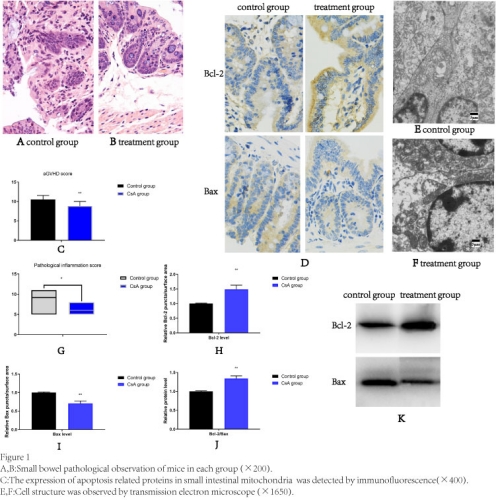
Contributions
Abstract: PB1801
Type: Publication Only
Session title: Stem cell transplantation - Experimental
Background
Acute graft-versus-host disease (aGVHD) limits the success rate of allogeneic hematopoietic stem cell transplantation (allo HSCT),which is a major complication and remains a significant cause of morbidity and mortality.Cyclosporine can inhibit the induction of MPTP by Ca2 + and ROS, protect the integrity of mitochondrial cristae junction and intima, and reduce the level of ROS and the formation of autophagy.It can regulate the expression of Bax and Bcl-2, reduce the oxidative damage and apoptosis induced by oxidative stress (OS).Low plasma CsA concentrations early following allo-HSCT is associated with an increased risk of developing aGVHD.Conversely,Higher therapeutic CsA levels early post transplantation reduce risk of aGVHD and improves survival.In the absence of specific drugs, the correct understanding and optimization of cyclosporine treatment has important clinical significance for the prevention and treatment of aGVHD.
Aims
To investigate the therapeutic effects of cyclosporine on gastrointestinal aGVHD and the regulatory mechanisms at the level of abnormal mitochondrial apoptosis in the intestine.
Methods
After were irradiated by 60co X rays,CB6F1 mice were transplated by using the mononuclear cells suspension (bone marrow + spleen)of Balb/c mice infused into the tail vein.The model group was administrated with 0.9% sodium chloride intragastrically,and the treatment group was administrated with intragastrically 5mg/kg cyclosporine. After 28 days,the clinical score of aGVHD and the pathological inflammation score of small intestinal mucosal were evaluated ,respectively.The small intestinal mucosal mitochondria were observed by using transmission electron microscopy(TEM). Western blotting and immunofluorescence were used to detect the expression of apoptosis related proteins (bcl2 and bax)in two groups.
Results
1. The differences of clinical aGVHD scores between the two groups are significant(P<0.01)(Fig1 C).
2.The treatment effect of cyclosporine on intestinal aGVHD
The observation of HE staining showed that, compared with blank group, intestine tissue of the mice in treated group were improved (Fig1 A and B) , which indicated the treatment effect of cyclosporine in improving intestinal aGVHD is obvious. In addition, the pathological inflammation score between the two groups differed statistically significantly.(P<0.1)(Fig1 G).
3.The expression levels of mitochondrial apoptosis related proteins tested by immunofluorescence.
Found that compared with the blank group, cyclosporine not only can increase the intestinal Bcl2 expression level ,but also decrease the Bax expression level.(Fig1 D).
5.Bcl2 and Bax level tested by western blotting
Cyclosporine corrected the aberrant levels of apoptotic proteins, increased Bcl2 expression and decreased Bax expression levels after transplantation (Fig1 K), all of which were statistically significant(P<0.01)(Fig1 H and I).There was a significant difference in the relative expression levels , i.e., BCL2 / Bax of the two groups. (P<0.01)(Fig1 J).
4. Mitochondrial structure was observation by TEM
After transplantation, mitochondrial structure swelling, broken membrane structure. However, in the treated group,mitochondria structure was relatively intact .(Fig1 E and F).

Conclusion
Cyclosporine can reduce apoptosis and protect intestinal mucosal barrier by inhibiting the activity of T lymphocytes, protecting the structure and function of the mitochondrial membrane, thereby reducing the incidence of intestinal aGVHD after transplantation.
Keyword(s):
Abstract: PB1801
Type: Publication Only
Session title: Stem cell transplantation - Experimental
Background
Acute graft-versus-host disease (aGVHD) limits the success rate of allogeneic hematopoietic stem cell transplantation (allo HSCT),which is a major complication and remains a significant cause of morbidity and mortality.Cyclosporine can inhibit the induction of MPTP by Ca2 + and ROS, protect the integrity of mitochondrial cristae junction and intima, and reduce the level of ROS and the formation of autophagy.It can regulate the expression of Bax and Bcl-2, reduce the oxidative damage and apoptosis induced by oxidative stress (OS).Low plasma CsA concentrations early following allo-HSCT is associated with an increased risk of developing aGVHD.Conversely,Higher therapeutic CsA levels early post transplantation reduce risk of aGVHD and improves survival.In the absence of specific drugs, the correct understanding and optimization of cyclosporine treatment has important clinical significance for the prevention and treatment of aGVHD.
Aims
To investigate the therapeutic effects of cyclosporine on gastrointestinal aGVHD and the regulatory mechanisms at the level of abnormal mitochondrial apoptosis in the intestine.
Methods
After were irradiated by 60co X rays,CB6F1 mice were transplated by using the mononuclear cells suspension (bone marrow + spleen)of Balb/c mice infused into the tail vein.The model group was administrated with 0.9% sodium chloride intragastrically,and the treatment group was administrated with intragastrically 5mg/kg cyclosporine. After 28 days,the clinical score of aGVHD and the pathological inflammation score of small intestinal mucosal were evaluated ,respectively.The small intestinal mucosal mitochondria were observed by using transmission electron microscopy(TEM). Western blotting and immunofluorescence were used to detect the expression of apoptosis related proteins (bcl2 and bax)in two groups.
Results
1. The differences of clinical aGVHD scores between the two groups are significant(P<0.01)(Fig1 C).
2.The treatment effect of cyclosporine on intestinal aGVHD
The observation of HE staining showed that, compared with blank group, intestine tissue of the mice in treated group were improved (Fig1 A and B) , which indicated the treatment effect of cyclosporine in improving intestinal aGVHD is obvious. In addition, the pathological inflammation score between the two groups differed statistically significantly.(P<0.1)(Fig1 G).
3.The expression levels of mitochondrial apoptosis related proteins tested by immunofluorescence.
Found that compared with the blank group, cyclosporine not only can increase the intestinal Bcl2 expression level ,but also decrease the Bax expression level.(Fig1 D).
5.Bcl2 and Bax level tested by western blotting
Cyclosporine corrected the aberrant levels of apoptotic proteins, increased Bcl2 expression and decreased Bax expression levels after transplantation (Fig1 K), all of which were statistically significant(P<0.01)(Fig1 H and I).There was a significant difference in the relative expression levels , i.e., BCL2 / Bax of the two groups. (P<0.01)(Fig1 J).
4. Mitochondrial structure was observation by TEM
After transplantation, mitochondrial structure swelling, broken membrane structure. However, in the treated group,mitochondria structure was relatively intact .(Fig1 E and F).

Conclusion
Cyclosporine can reduce apoptosis and protect intestinal mucosal barrier by inhibiting the activity of T lymphocytes, protecting the structure and function of the mitochondrial membrane, thereby reducing the incidence of intestinal aGVHD after transplantation.
Keyword(s):


